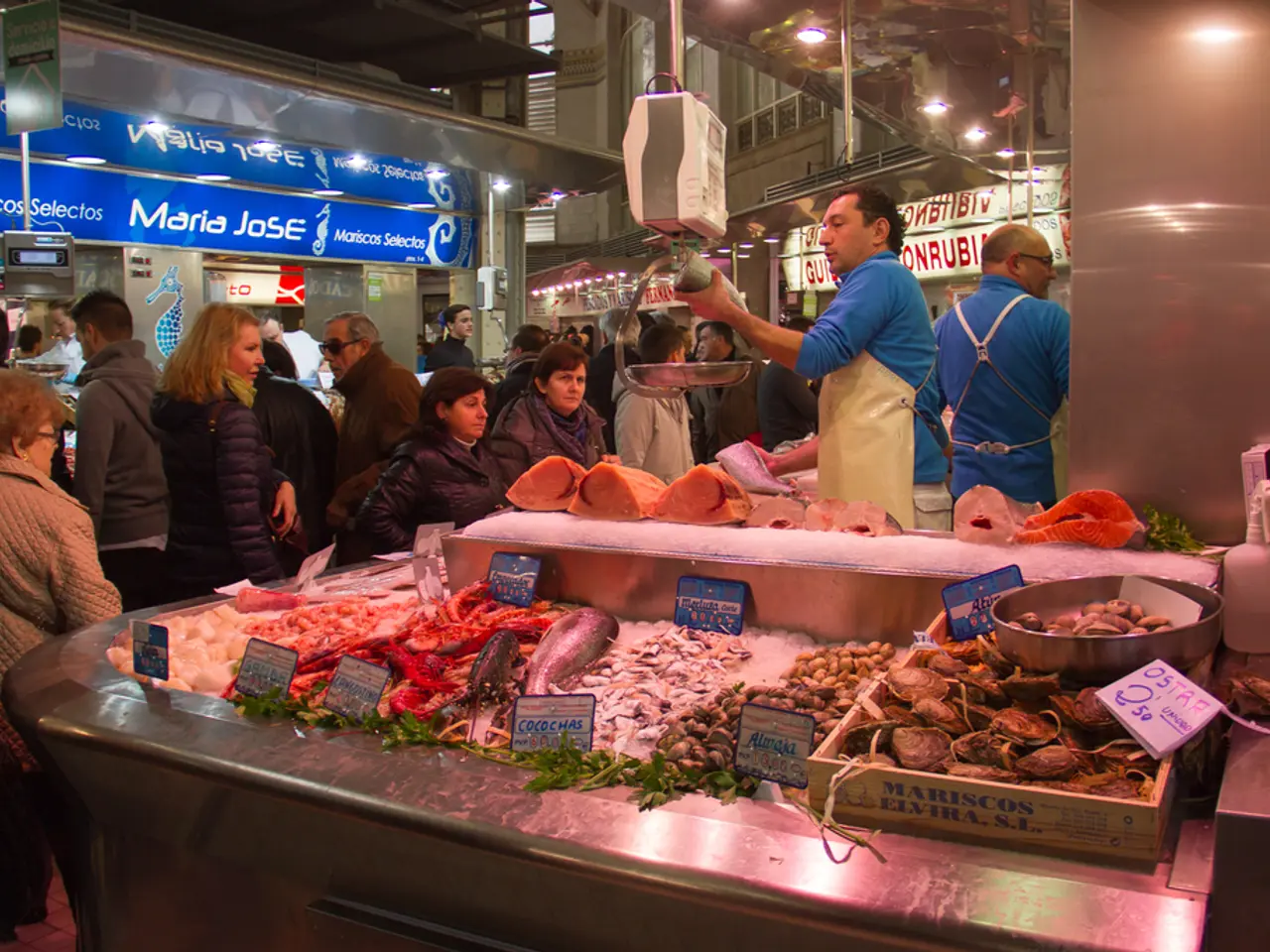Accelerating Fish Processing in Malaysia to Match Growing Seafood Market Needs
In the heart of Terengganu, the Malaysian government, through the Malaysian Fisheries Development Authority (LKIM), is taking proactive measures to address fish supply shortages and support the local fishing industry.
Some producers in Terengganu have suspended production for weeks due to a lack of raw materials, particularly tamban fish, which has been in shortage over the past two years. This has affected traditional keropok keping producers in the region. To address this issue, LKIM is encouraging fishermen's associations nationwide to explore downstream ventures, such as the production of value-added products like keropok, candied squid, and other seafood items.
The initiative aims to ensure a steady supply of fish-based products, including keropok, a popular snack in Terengganu. LKIM is providing support in the form of equipment, funding, and skills training for these ventures. The establishment of a fillet processing plant in Besut, overseen by local agricultural and fisheries authorities in collaboration with regional development agencies, is a testament to this support.
Fishermen, the frontliners of national development, contribute significantly to food security, strengthen the people's economy, and play a vital role in safeguarding the nation's independence. Recognising their importance, LKIM has introduced the One Fishermen's Association, One Business agenda to strengthen the role of associations in generating income and ensuring consistent product supply.
LKIM is also supporting fishermen's livelihoods during the monsoon season by providing a monthly Cost of Living Allowance of RM300 to more than 36,000 fishermen nationwide, in addition to facilities such as fisheries complexes and economic support groups.
The business of producing value-added products does not require large capital, only commitment. Fishermen are encouraged to remain industrious and competitive in their downstream ventures, diversifying their income by using marine resources more creatively, producing frozen fish fillets, dried seafood, keropok or even shell-based handicrafts.
By strengthening the downstream sector, including setting up fish fillet processing plants, LKIM is not only ensuring a steady supply of fish-based products but also creating opportunities for fishermen to improve their livelihoods. The food sector, being a basic necessity, is given priority, and its neglect could lead to it being taken over by outsiders, creating a new form of economic colonisation.
In conclusion, LKIM's efforts in Terengganu are a significant step towards addressing fish supply shortages, supporting the local fishing industry, and empowering fishermen to improve their livelihoods. The initiative not only ensures a steady supply of fish-based products but also contributes to national development and food security.
Read also:
- Nightly sweat episodes linked to GERD: Crucial insights explained
- Antitussives: List of Examples, Functions, Adverse Reactions, and Additional Details
- Asthma Diagnosis: Exploring FeNO Tests and Related Treatments
- Unfortunate Financial Disarray for a Family from California After an Expensive Emergency Room Visit with Their Burned Infant








